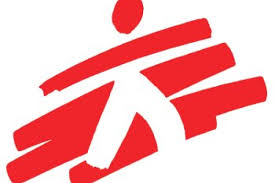News Flash

TAWILA, Sudan, Aug 14, 2025 (BSS/AFP) - Cholera has claimed at least 40 lives
in Sudan's Darfur region over the last week as the country weathers its worst
outbreak of the illness in years, Doctors Without Borders (MSF) said on
Thursday.
The medical charity said the vast western region, which has been a major
battleground over more than two years of fighting between the regular army
and the paramilitary Rapid Support Forces, had been hardest hit by the year-
old outbreak.
"On top of an all-out war, people in Sudan are now experiencing the worst
cholera outbreak the country has seen in years," MSF said in a statement.
"In the Darfur region alone, MSF teams treated over 2,300 patients and
recorded 40 deaths in the past week."
The NGO said 2,470 cholera-related deaths had been reported in the year to
August 11, out of 99,700 suspected cases.
Cholera is an acute intestinal infection that spreads through food and water
contaminated with bacteria, often from faeces.
It causes severe diarrhoea, vomiting and muscle cramps.
Cholera can kill within hours when not attended to, though it can be treated
with simple oral rehydration, and antibiotics for more severe cases.
There has been a global increase in cholera cases, which have also spread
geographically, since 2021.
MSF said mass displacements of civilians sparked by the war in Sudan had
aggravated the outbreak by denying people access to clean water for essential
hygiene measures, such as washing dishes and food.
- No other choice -
"The situation is most extreme in Tawila, North Darfur state, where 380,000
people have fled to escape ongoing fighting around the city of El-Fasher,
according to the United Nations," MSF said.
"In Tawila, people survive with an average of just three litres of water per
day, which is less than half the emergency minimum threshold of 7.5 litres
needed per person per day for drinking, cooking, and hygiene."
At a cholera isolation centre in a tent at a Tawila displacement camp, an AFP
journalist saw women and a young girl receiving intravenous fluids, while
around them exhausted and weak patients were sprawled out on camp beds.
"We mix lemon in the water when we have it and drink it as medicine," said
Mona Ibrahim, who has been living for two months in a hastily-erected camp in
Tawila.
"We have no other choice," she said. "We don't have toilets -- the children
relieve themselves in the open," she added.
According to the World Health Organization, between January of 2023 and July
of this year, Sudan had the highest number of cholera deaths of any country
in the world.
Sudan's mortality rate from cholera, at 2.1 percent, is more than 2.5 times
higher than the global average.
- Contaminated water -
Since forces loyal to the regular army recaptured the capital Khartoum in
March, fighting has again focused on Darfur, where the paramilitaries have
been attempting to take El-Fasher.
The besieged pocket is the last major city in the western region still under
the army's control and UN agencies have spoken of appalling conditions for
the remaining civilians trapped inside.
"In displacement and refugee camps, families often have no choice but to
drink from contaminated sources and many contract cholera," said Sylvain
Penicaud, MSF project coordinator in Tawila.
"Just two weeks ago, a body was found in a well inside one of the camps. It
was removed, but within two days, people were forced to drink from that same
water again."
MSF said that heavy rains were worsening the crisis by contaminating water
and damaging sewage systems, while the exodus of civilians seeking refuge was
spreading the disease.
"As people move around to flee fighting, cholera is spreading further, in
Sudan and into neighbouring Chad and South Sudan," it said.
MSF's head of mission in Sudan, Tuna Turkmen, said the situation was "beyond
urgent".
"The outbreak is spreading well beyond displacement camps now, into multiple
localities across Darfur states and beyond," he said.
"Survivors of war must not be left to die from a preventable disease."